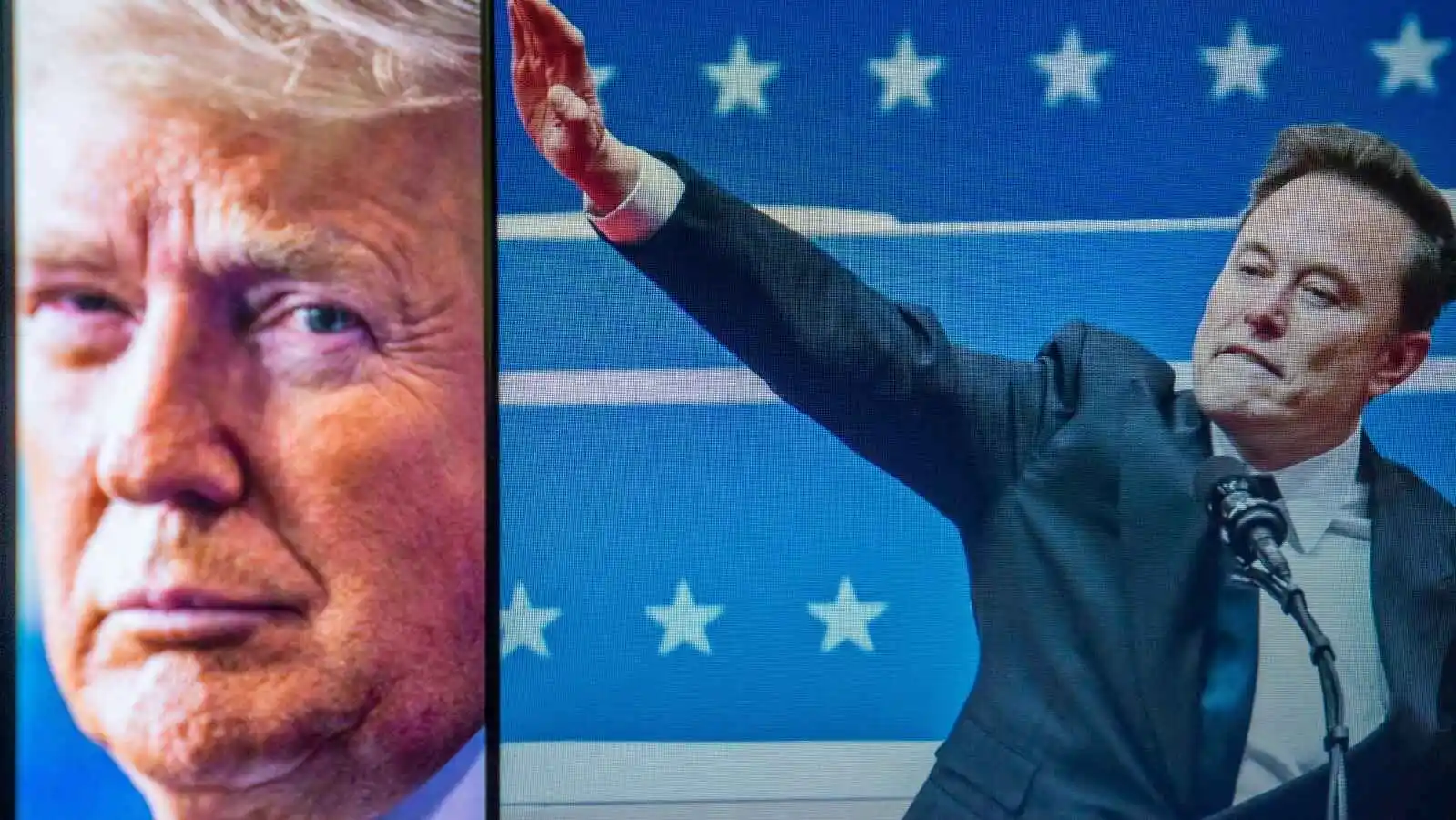Business News
Is Elon Musk sabotaging Trump's 'One Big Beautiful Bill'? What's driving billionaire's rebellion?

4 min read | Updated on June 05, 2025, 17:03 IST
SUMMARY
Elon Musk, who recently stepped down from a government advisory role, is particularly angered by the bill’s plan to eliminate the $7,500 electric vehicle tax credit, according to US media.

Billionaire Elon Musk has launched a fierce campaign against President Donald Trump’s signature legislation.
Billionaire Elon Musk, who, just a few days back, was part of the Trump administration as a special government employee, has launched a fierce campaign against the US President’s signature legislation – One Big Beautiful Bill.
Is Elon Musk Fighting for Tesla?
The House-passed version of the bill, a sweeping tax and spending measure, would end the popular $7,500 electric vehicle tax credit by the end of 2025, a move that directly impacts Musk’s electric car company, Tesla.
The Tesla CEO personally appealed to House Speaker Mike Johnson to preserve the credit, Bloomberg reported, citing a person familiar with the matter.
Musk intensified his attacks Wednesday, calling the tax and spending bill a “massive, outrageous, pork-filled Congressional spending bill” and a “disgusting abomination” in posts on X.
He urged Americans to contact their lawmakers to kill the “Debt Slavery Bill,” warning it would “massively grow the deficit and increase the debt ceiling by 5 TRILLION DOLLARS.”
How did the White House respond?
Musk’s offensive prompted the White House to push back without naming the billionaire, issuing a “Mythbuster” statement Wednesday that defended the legislation.
“By every honest metric, President Donald J. Trump’s One Big Beautiful Bill dramatically improves the fiscal trajectory of the United States and unleashes an era of unprecedented economic growth,” the statement read.
It claimed the bill delivers $1.7 trillion in mandatory savings, the highest in history on an inflation-adjusted basis, and reduces the deficit by $1.407 trillion over the next decade, partly offset by one-time spending on border security and tax cuts like “no tax on tips” and “no tax on overtime.”
The statement also disputed claims of deficit increases, arguing that forecasts, including those by the nonpartisan Congressional Budget Office (CBO), rely on a “false assumption” that Trump’s 2017 tax cuts will expire.
It argued that extending current tax rates has “zero impact on the deficit” and noted CBO projections that Trump’s tariffs will cut the deficit by $2.8 trillion over 10 years.
However, the CBO’s latest estimate, released Wednesday, projects the House-passed bill would add $2.4 trillion to US budget deficits through 2034, a $3.67 trillion decrease in expected revenues and a $1.25 trillion decline in spending relative to baseline projections.
The score does not account for potential economic growth, which Trump and Johnson argue would offset revenue losses.
The White House also released a list of “50 Wins in the One Big Beautiful Bill,” touting its benefits, while Trump has personally lobbied holdouts to secure passage.
Senators faced questions about Musk’s objections during a White House meeting Wednesday.
Senate Majority Leader John Thune, R-S.D., told pool reporters, “We’re a long ways down the track… We are moving forward.”
Sen. Roger Marshall, R-Kan., was blunter, telling Bloomberg Television, “Elon was not important at all as far as this conversation goes.”
Musk’s crusade comes days after he stepped back from a temporary role as a Special Government Employee leading the Department of Government Efficiency (DOGE) initiative to cut federal spending.
In X posts, Musk claimed the bill “more than defeats all the cost savings achieved by the @DOGE team at great personal cost and risk.”
Is the GOP prepared to lose Musk and the House?
His exit from the role had initially cheered investors hoping for a refocus on Tesla, where sales of electric vehicles have plunged amid his political involvement.
However, Musk’s public condemnation threatens to stiffen resistance and delay enactment of the tax cuts and debt ceiling increase, a critical priority for the president.
Musk, with a net worth of about $377 billion according to the Bloomberg Billionaires Index, has emerged as a key financial backer of the Republican Party.
In 2024, he became the biggest US political donor, giving over $290 million, mostly to elect Trump.
His America PAC spent $18.5 million in 17 House races, a significant sum in congressional elections where challengers typically raise less than $1 million.
With control of the House likely hinging on fewer than two dozen close races in the 2026 midterms, the GOP’s majority could be at risk if Musk withdraws support.
By signing up you agree to Upstox’s Terms & Conditions
About The Author
Next Story

